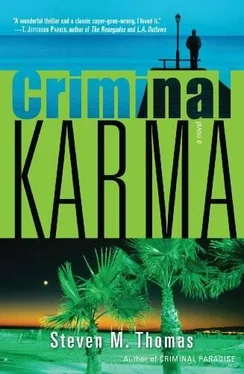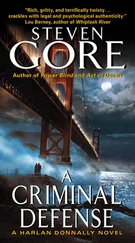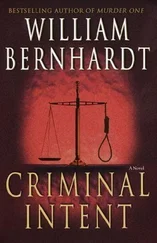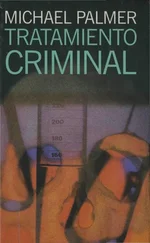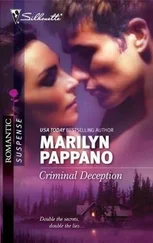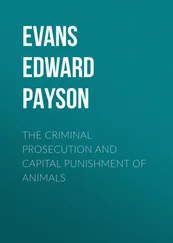“Yes, sir!” Mr. Parker said, forgetting his disappointment at the man’s failure to appreciate his perennial joke. “She’s slick all right. Not as slick as your Caddie, though. You need your keys?”
“Yes, please.”
“Nice day for a drive,” he said when he came back out of the shack. “This wind dies down in a little while it’ll be another bee -you-tee-ful day at our beach.”
“Sure will,” I said. “Have you seen that kid Oz this morning?”
“Not this mornin’. That young man don’t come this far over. I only see him afternoons when I eat lunch, or evenings after I close the lot.”
“What do you mean he doesn’t come over this far?”
“Don’t you know ‘bout him?”
“No.”
“He don’t come this side of Pacific or go beyond Ozone, up yonder. That’s how he got his name, you know? Ozone Pacific? He stay right on the beach.”
“Why?”
If Mr. Parker was right, Ozone was confined to a strip of real estate no more than a quarter-mile wide and at most two miles long, if he ranged all the way south to the Marina del Rey channel, where Venice Beach ended.
“Guess he juss like it down there.”
“How long has he been there?”
“Ain’t sure, Mr. Rivers. I don’t like to pry too much ‘bout a man’s bidnis. He was hanging ‘round down by that palm tree of his when I opened my lot eight years ago.”
“He hasn’t crossed Pacific Avenue in eight years?”
“Not that I heard of.”
I wheeled the Caddie out onto Horizon, jogged through the neighborhood to Lincoln, then took Lincoln north to Wilshire. When I thought of Ozone trapped in his tiny world I felt pity as sharp as panic and turned my mind away from his strange plight, focusing on the present moment, a remedy for mental and emotional distress recommended by spiritual teachers in all traditions.
I was on my way to an exciting meeting. It was a beautiful morning, if a little windy, and I was driving a new Cadillac. With its smooth leather, silky ride, and rocket-ship power, the Seville made every trip a pleasure, and I relaxed into the sensation of piloting the car along Wilshire through Brentwood and Westwood, past sidewalks crowded with UCLA coeds, serious and sexy, to the ultimate name-brand city of Beverly Hills. A bronze Bentley pulled away from the curb on Crescent Drive just as I turned off Wilshire, and I slid into the convenient spot. Most of the stores along Beverly and Rodeo wouldn’t open for another hour or two, but I knew Fahim would be in his shop.
When I rapped on the glass door at the corner of Beverly and Brighton, he looked up from a catalogue and came around from behind the glass case to let me in.
“Sabaah al-kheir,” he said. The morning is good.
“Sabaah an-noor,” I replied as he had taught me. The morning is light.
He was a Lebanese immigrant jeweler in his fifties with whom I had been doing business for several years. Medium height and build, short gray hair, gray goatee and rimless glasses.
“What can I do for you, Robert, my friend?” he asked, his gray eyes sparkling.
“Let’s go in the back.”
When he saw the pink diamond earrings his face shone.
“You always bring quality, Robert,” he said, inclining his handsome head. Dressed impeccably in Brooks Brothers threads, possessed of the excellent manners typical of Middle Easterners educated in Europe, he was a pleasure to do business with. He had plenty of legitimate customers, but he took special pleasure in illicit deals, partly because of the Bedouin currents deep in his blood, partly because those deals were the most profitable.
Fahim examined the diamonds lovingly, using a loupe, a microscope, and some kind of scanner to make sure their rare rose color had not been enhanced by radiation or heat. After his technology had backed up his jeweler’s eye and intuition, we haggled for a few minutes for form’s sake, arriving at the price he had in mind all along. He paid me in cash, six bank-banded packets of crisp hundreds, a neat and generous 30 percent of the likely retail value of the two stones. I wasn’t sure what he did with the jewels he fenced but suspected that he sold them overseas through family connections, eliminating the chance of any blowback from the local cops.
At the door, he laid his neatly manicured hand on my shoulder. “Go in safety, Robert,” he said in his formal way. “Return soon.”
“Back at you, bro,” I said, getting him to grin.
I cruised toward the ocean on Wilshire, cutting over to Santa Monica Boulevard at Twentieth Street and continuing west to the address on the card I had taken from Evelyn’s desk. Her lawyer was ensconced in a small 1950 s-vintage office building. It was three stories, with a handsome limestone-and-glass veneer. Two flourishing date palms at the corners added a tropical touch.
I parked down the street and walked back along the alley behind the building. There were steel bars over the ground-floor windows and a metal fire escape with the first set of steps retracted. Around front, I walked in the entrance and looked at the directory in the unattended lobby. The offices of Hildebrand & Hildebrand took up the entire third floor. Apparently the nepotistic bastard had taken his son into business with him.
Access to the third floor was by a tiny four-person elevator and a set of service stairs. The building’s front and back doors were both alarmed. The lawyer’s office door would be, too. It would be tricky ghosting through multiple alarm systems without disturbing the doughnut eaters but we could probably do it. Jail time for breaking and entering an unoccupied building is much less than for armed robbery, and in a burglary you don’t have to worry about hero complexes and heart patients.
Back in the alley, I took another look at the fire escape. If we pulled the retracted steps down, it would get us to the third floor. From there, we could climb onto the roof, using the short steel ladder that was bolted to the wall to give maintenance workers access to the top of the building.
I liked it. Going through the roof, we would avoid the alarm systems. There might be a vent opening large enough to squeeze through once the cover was pried off. If not, I could use a cordless reciprocating saw to enlarge a smaller opening.
Buildings like this one weren’t constructed with security in mind. The roof was nothing but tar and plywood atop two-by-eight or two-by-ten joists with lath and plaster underneath. The saw would be noisy for twenty or thirty seconds, but it was a commercial district. There wouldn’t be anybody around at 2 a.m. We could find a place to watch from, wait till the cops did their midnight drive-by, then drop down into the lawyer’s office with a pack of safecracking tools.
If the safe stymied us, we could put on masks and jump the lawyer when he showed up the next morning. Heroically self-sacrificing attorneys are as rare as virgins in Vegas, and I didn’t think it would take too many light taps on the forehead with a pry bar to convince Hildebrand, junior or senior, to cough up the combination. Once we had the diamonds, we could tie up the lawyer, his security guard, and any of the office staff who came in early, then take the elevator down to the lobby. If we brought our tools into the building in a couple of sturdy shoulder bags, we could carry them out the front door without attracting attention. All we needed was a place to park the car that wasn’t too far away and wouldn’t attract the attention of the police.
Well-dressed pedestrians passed in both directions on the sidewalk in front of the building. The boulevard was busy with cabs, passenger cars, and local delivery trucks. Looking up and down the street, I saw a Norm’s one block west of the lawyer’s building. Norm’s restaurants, scattered across Los Angeles and Orange County, are all-night eateries that bustle until two or three o’clock in the morning. It was a gift.
Читать дальше
